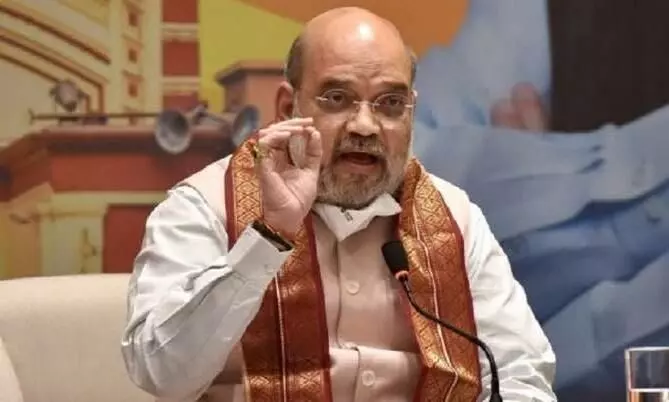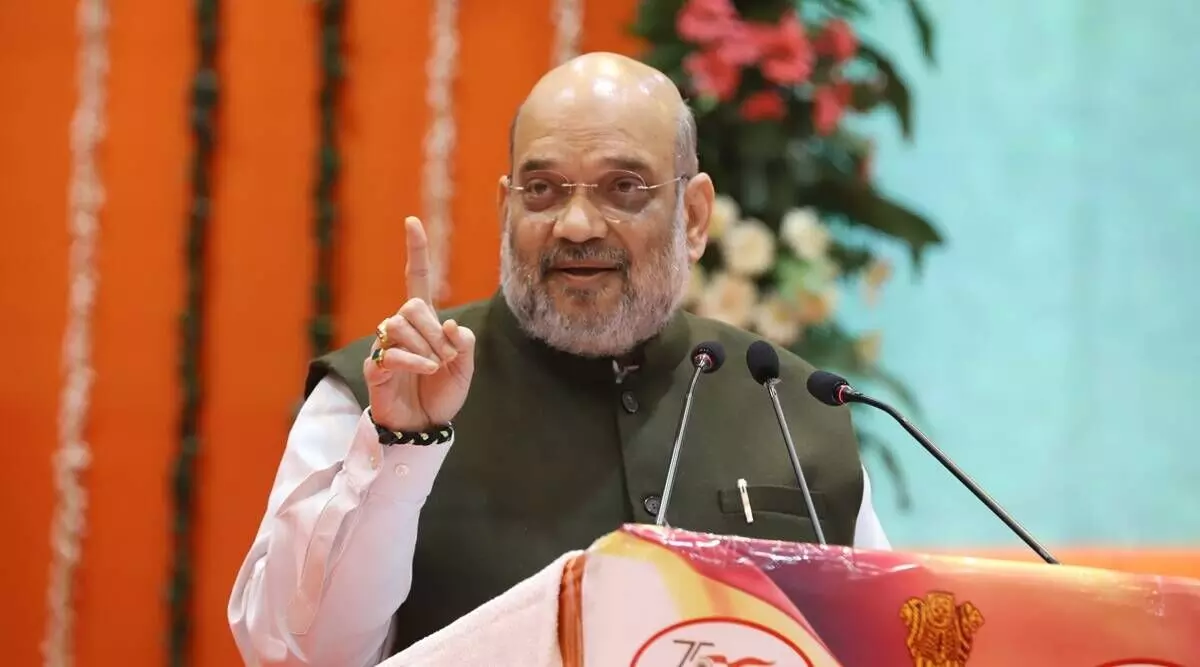
Imposition will not make unity
text_fieldsAt the 37th meeting of the Parliamentary official Language Committee, Union Home Minister Amit Shah suggested that people from different states of India must use Hindi instead of English to communicate with each other. Naturally, it has sparked a controversy. Non-Hindi states, especially the southern states, feel that the BJP's efforts to impose Hindi on non-Hindi are gaining strength. In fact, Hindi is only one among 120 plus languages in India. It's just that the number of those who have Hindi as their mother tongue is the highest. Twenty-two languages are listed in the Eighth Schedule of the Indian Constitution. The official language status has been fixed under Article 343 of the Constitution for the convenience of the Union Government and the High Courts, but English is also included in it. An official language was introduced for the convenience of the administrative process at the national level, while States could adopt their own official language or languages. India does not have a national language; and no language, including Hindi, is designated as the national language. Although the Official Languages Act states that Hindi should be gradually popularized, it is also stipulated that it should be in a manner acceptable to non-Hindi people.
The Constitution, which made English and Hindi the official languages, also recommended that after 15 years, the status of English should be reduced gradually and Hindi be given more importance. Accordingly, by 1965, attempts were initiated to exclude English and give official status only to Hindi. However, strong opposition from non-Hindi states also broke out simultaneously. When those language agitations became intense to the extent of undermining the unity of the country, Prime Minister Jawaharlal Nehru gave an assurance that English would not be replaced by Hindi as long as non–Hindi speakers would not accept it. Now, Amit Shah has hinted at a re-imposition of Hindi, paradoxically as a means of promoting unity. The guarantee that Hindi will not be imposed is the soul of the Official Language Act of 1967 which is the way of unity.
Though Amit Shah describes Hindi as the 'language of India', Malayalam, Tamil, Telugu, Oriya, Bengali and English also remain as languages of India. People's language is not something that can be changed by passing laws. Imposing a language is fascism, and it is a fascist view that linguistic diversity hinders a country's unity. Earlier, using multiple languages was not conducive to governance. However, with the advancement of digital technology, instant translations have become available, and the inconveniences of the past have been reduced. It is when the so-called 'local' languages, including Malayalam, are also included in the official languages of India, apart from Hindi and English, that the country's unity gets strengthened. The government should think along those lines. Some countries, such as Switzerland, have adopted many languages as official. It has, not only not hampered their unit or growth, but even helped them. English, as a global language, has helped us towards progress and as a lingua franca within India. Moreover, Hindi can never substitute it for these two purposes.
In this context, we have to but realise that unity and uniformity are two things. The idea that a country must follow one language, one dress and one diet must be abandoned. An imposed oneness would destroy unity. In the northeastern states, residents have vehemently opposed Amit Shah's statement that Hindi will be made compulsory till the tenth standard. Vice President Venkaiah Naidu described Hindi as the national language in a 2017 speech, the Centre attempted to get Hindi recognized in the United Nations the same year, and in 2018, the Union Ministry of Education mandated Hindi as a compulsory subject in all central universities, and none of these has helped to promote country's unity, but they will lead to an over-emphasis on Hindi and neglect of other languages. When Amit Shah says that 70 per cent of the Union Cabinet's agenda is in Hindi and 22,000 Hindi teachers have been newly recruited for the eight non-Hindi states, it also means that other languages and their speakers are being sidelined. Even in the local stations of All India Radio and Doordarshan, there is an excessive presence of Hindi. It seems some at the Centre are adamant that the Union government's schemes must be named only in Hindi. Do the numerous names like "Poshan Shakti Nirman", "Svamitva Yojana", "Garib Kalyan Rosgar Yojana", "Kisan Urja Suraksha Evam Utthaan Mahabhiyan Yojana" give a blooming message of unity and inclusion or that of exclusion and alienation? Doesn't giving too much benefit to any language destroy not only unity but also equality? Instead of imposing Hindi, what is needed is to give more consideration to other languages.















